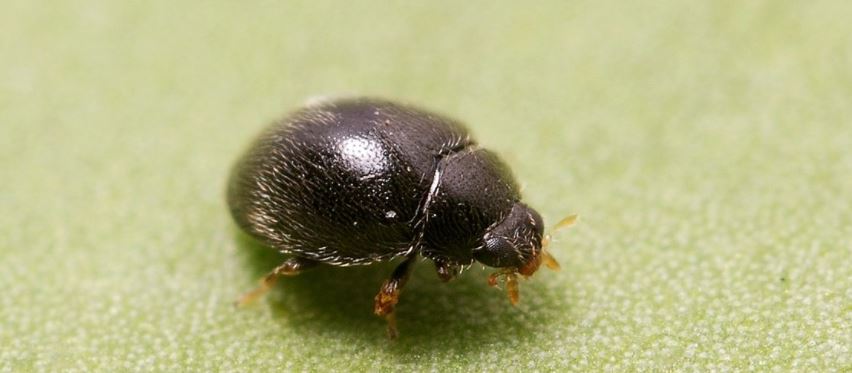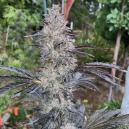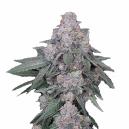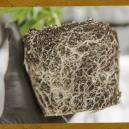Organic Cannabis Pest Control
Published :
May 4, 2017
Categories :
Other subjects

Keeping your plants free of pests can be done in a number of ways, doing it organically can make a huge difference.We take a look at some practical organic options every cannabis hobby grower can utilise.
Pests can form a major problem for any grower, whether your cannabis plants are grown indoors, outdoors or in a greenhouse. If left unattended they may take over your growing space and destroy the harvest. There are a lot of ways to combat these pests, but most of them are synthetic or chemical in nature and are possibly harmful to the environment, not to mention the traces it will leave on your precious buds.
IPM - INTEGRATED PEST MANAGEMENT
Ever since the 1930’s, growers have been looking for solutions to control pests in the garden. IPM, Integrated Pest Management, is the term used for integrating ways of managing the pests in your growing space, in any way possible. This includes biological, chemical and mechanical ways of achieving this goal. Think of plants that have modified genes or specifically engineered pesticides designed to efficiently kill off a specific species. While these are very effective ways of controlling the population of a pest, or even completely eradicating them, such options can have negative effects on the environment and the end product, so for the organic grower, these are not viable options.
By using organic alternatives, the need for using harmful chemicals can be eliminated, or at least diminished. Organic solutions are not only safer for the environment but also safer for the health of the future users of the homegrown cannabis. Here are some options to consider:
COMPANION PLANTING TO PROTECT YOUR PLANTS
If you have ever thought about giving your cannabis plants tiny bodyguards, then companion planting is the solution for you. The idea is to build an ecosystem inside your growing space that helps your plants stay safe from pests but even illnesses. Planting specific species of plants near or in the same pot as your cannabis plants can form an extra barrier against unwanted pests. Even though companion planting might seem like a less likely solution for the indoor grower, it is still very achievable when using small and compact growing species.
Plants that give off a very strong smell are good at deterring pests. Species like basil, lavender, rosemary and sage make your garden, indoor or outdoors, less attractive for pests like beetles, aphids and thrips. Marigolds are small, colourful and form a distraction from you cannabis plants; most pests will prefer these flowers over your precious harvest.
ORGANIC FOLIAR SPRAYS
Foliar sprays are a staple in every gardener's toolbox, either to just mist the plants or to prevent pests from taking over the garden. Most of these sprays are synthetic or chemical in nature, but there are organic alternatives.
To prevent pests from picking your cannabis plants as a new home, you could use these repellents to spray your plants. Essential oils that are highly aromatic work well to keep pests away. Oils like clove oil, peppermint oil or cinnamon oil work well and safe to use, if used in manageable doses. You could even add the oils to your compost since the plants will take the nutrients from the soil and transport them throughout the entire plant.
If you already have a population of pests in your growing space more aggressive measures might be needed. When putting together an organic foliar spray to destroy a population of pests keep in mind that it should be designed to prevent the population from reproducing, so it will eventually simply die off. The first step is identifying which specific species of pests you are dealing with, since every species will need a different approach and there is no simple kill-all solution available.
BT Spray comes very close to it though and effectively kills fungus, gnats, and larvae, as well as caterpillars, worms and moths. BT Spray uses a bacterium called Bacillus thuringiensis that prevents the pests from being able to eat, so keep in mind that even though they might not die instantly, the BT Spray is still doing its work it just takes longer.
You could also mix 9 parts water to 1 part rubbing alcohol and spray the bugs directly, do this once a week for the desired effect. Another good alternative is Spinosad, which kills aphids, crickets, grasshoppers, worms, spider mites and whiteflies. These products are safe for pets, humans and plants while even leaving most beneficial species of insects alive. You only want to get rid of the nasty bugs, not the good ones.
With all of these, bear in mind you will not want to use them during flowering, as it will leave residue on your final product!
RELEASING THE PREDATORS
The word predator might make you think of an older movie starring Arnold Schwarzenegger, and you are not far from the truth; it is basically releasing beneficial bugs into your garden to fight the unwanted bugs. This solution might not be ideal for indoor growers, but it can work and also in a greenhouse it can be very effective if used properly.
The first requirement is choosing the right insect for the job. Not every predator is equally effective across the board, most like to feed on one or two specific species of pests. If you compare Stethorus punctillum, a beetle that looks like a smaller black ladybug, to Gaeolaelaps, which is a soil predator, you see that the Stethorus is very effective against spider mites but does not help against fungus gnats. Gaeolaelaps might be less effective against mites in particular, but it also feeds on fungus gnats, so it is more of an all-rounder.
The second requirement is getting the predators to your home alive and well so they can start helping you out; dead predators feed on nothing. Make sure that the time between shipment and arrival is as short as possible and work with reputable sellers. Also ask if there are specific ways of introducing your new predators to your garden, different species of predators require different applications.
As you can see. there are a few options for organic pest control. There is no best or right answer, so experinment and find what works for your situation!









































